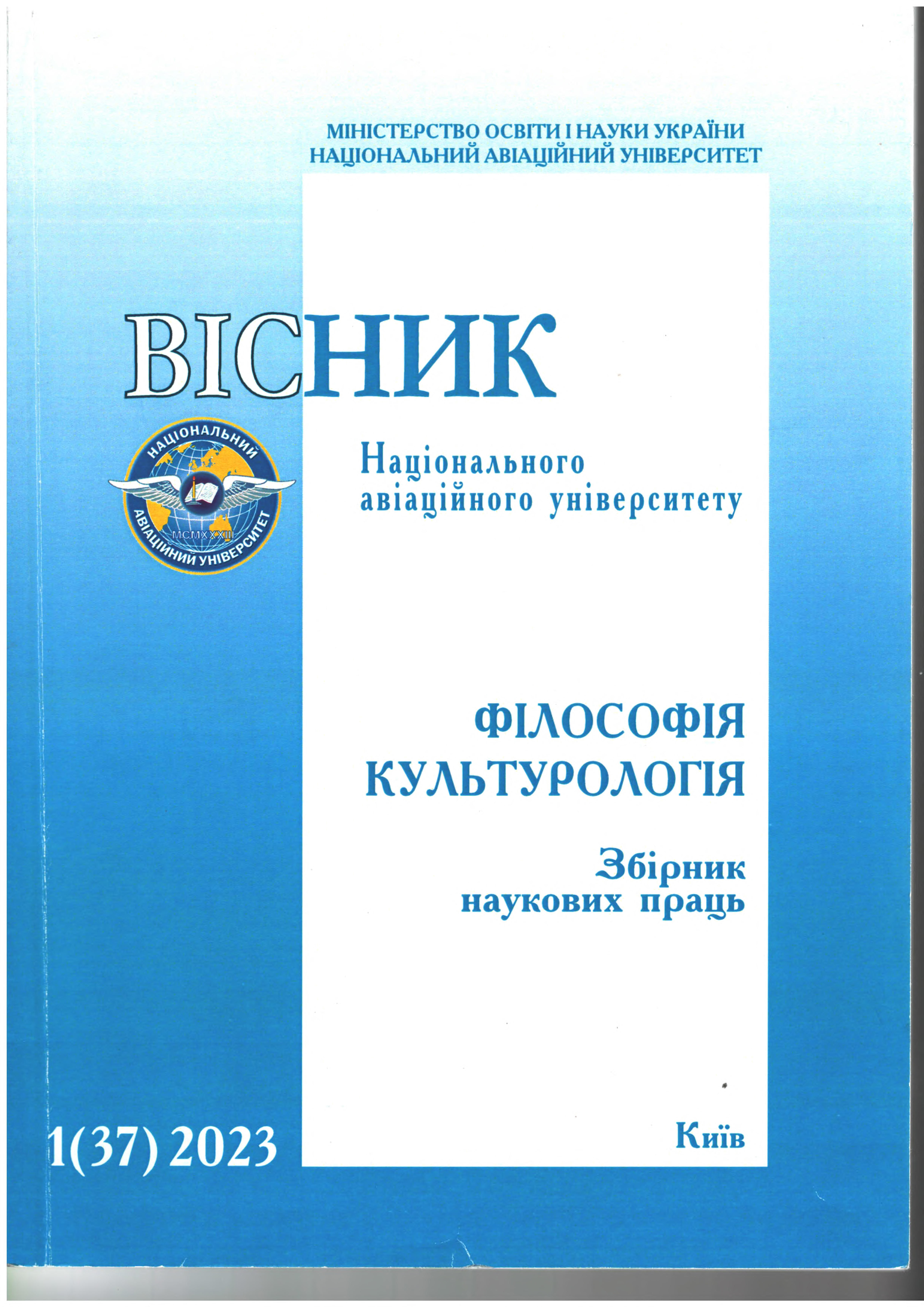THEORETICAL BASIS OF STRATEGIC FORECASTING IN INTERNATIONAL RELATIONS
DOI:
https://doi.org/10.18372/2412-2157.37.17578Keywords:
прогнозування, стратегічне прогнозування, прогноз, міжнародні відносиниAbstract
Introduction. The forecasting in the sphere of international relations has always been a challenge, the answer to which thinkers of the
past tried to find. Strategic forecasting allows the politicians who make important decisions to be ready for the new scenarios of reality.
The aim of the study is a socio-philosophical analysis of the theoretical-methodological essence and features of the mechanism of
strategic forecasting in modern international relations. The task is to determine the essence of the concepts "forecasting", "strategic
forecasting", "forecasting in the field of international relations", and to correlate their content. Research methodology. To achieve the
goal defined by the author of the article, a sociocultural methodological approach and a set of basic methods of scientific knowledge
were used: systematic analysis, comparison, critical analysis. Research results. A forecast is a probable judgment about the state of a
particular phenomenon in the future. The main task of strategic forecasting in international relations is the analysis of phenomena that
can influence the relations between states, international organizations and other subjects of international relations. Strategic forecasting
in international relations can help predict possible conflicts, changes in economic, political, and social spheres. For the development of
strategic forecasts, an appropriate methodological base is needed. It allows formulating a reasonable hypothesis. It is also necessary to
take into account the following factors: political, geographical, economic trends, social and environmental components, etc. Discussion.
Any prediction, both individual and collective, is based on a specific cultural and civilizational platform. Forecasting in the field of
international relations is a complex process, as it is associated with a significant number of variables and factors, each can influence the
course of events. World and regional trends of today develop in different directions and often contradict each other. Therefore, in
strategic forecasting, it is important to find the vector of development of the entire system, to determine the direction in which the
balance of forces in the world is changing. Conclusions. Among the main scenarios of the development of international relations today,
the following can be distinguished: continuation of globalization and strengthening of international integration, growth of conflicts, strengthening of the role of "non-traditional actors" of international affairs, growth of the role of social platforms, search for the new forms of communication and dialogue between the participants of international relations.
References
Телешун С. О., Баронін А. С. Політична аналітика,
прогнозування та політичні консультації. К. Паливода, 2001.
с.
Горбатенко В. П. Принципи, методи і основні етапи
політичного прогнозування. Людина і політика. 2003. № 5.
С. 46-55.
Дерега, В. В. Сутність та особливості політичного
прогнозування. Наукові праці. Серія політичні науки. 2008.
Вип. 66. С. 16.
Ржевська, Н. Ф. Політичне та стратегічне прогнозування:
суть і ознаки. Політичний менеджмент. 2011. Вип. 6. 37-42.
Чепелюк, Ю. В., Поплавський, М. М. 2022. Стратегічне
прогнозування в дипломатичній діяльності: традиції та
інновації. Редакційна колегія, 237. http://knukim.edu.ua/wpcontent/
uploads/2022/06/28.06.22-_Zbirnyk-materialiv_-2022-
Словник системного аналізу в державному управління;
редкол.: Ю. П. Сурмін, Л. Г. Шпика, В. Д. Бакуменко та ін. Київ:
НАДУ, 2006. 146 с.
Матвієнко В. Я. Прогностика. К.: Українські пропілеї,
518 с.
Клешня Г. М. Соціальне проєктування як спосіб
майбутнього творення в інформаційному суспільстві. Вісник
Національного авіаційного університету. 2017. Вип. 1 (25),
С. 53-57. (Серія «Філософія. Культурологія»).
Матюхіна О. А., Павлюк, Н. Ю. Зміна клімату як
глобальна проблема сучасності: виклики та шляхи вирішення
(філософський аспект). Вісник Національного авіаційного
університету. 2017. Вип. 2 (26), С. 89-93. (Серія «Філософія.
Культурологія»).
Сухова Н. М. «Перезавантаження» свідомості людини
ХХІ століття: виклики глобалізації. Вісник Національного
авіаційного університету. 2014. Вип. 1 (19), С. 48-52. (Серія
«Філософія. Культурологія»).
Пода Т. А. Зміна системи міжнародних відносин під
впливом інформатизації. Вісник Національного авіаційного
університету. 2016. Вип. 2 (24), С. 57-60. (Серія «Філософія.
Культурологія»).
Пода Т. А. Феномен соціальних мереж та їхній вплив на
суспільно-політичні процеси у глоблізованому світі. Вісник
Національного авіаційного університету. 2019. Вип. 1 (29),
С. 141-145. (Серія «Філософія. Культурологія»).

